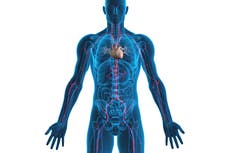New hope to help advanced Parkinson’s patients walk and sleep again
Research from France could help Parkinson’s sufferers who typically struggle to walk more than a few steps or sleep through the night

New research into advanced Parkinson’s has given people with the disease hope that they may be able to walk and sleep more easily again.
Sufferers of Parkinson’s, a degenerative disease, often struggle to walk or sleep due to a condition called orthostatic hypotension.
This occurs when a person stands up and their blood pressure drops, causing dizziness and possibly even fainting.
For people with Parkinson’s, it happens because not enough blood flows to the brain because a regulator in the brain has been disrupted.
But new French research published in the New England Journal of Medicine last week found that a spinal cord implant could help Parkinson’s sufferers.
Neurosurgeon Jocelyne Bloch and neuroscientist Gregoire Courtine revealed earlier this year that a spinal cord implant had enabled three paralysed people to walk again.
The latest research was tested on a 48-year-old woman who did not have Parkinson’s but had similiar symptoms, including orthostatic hypotension.
For paralysed people, the spinal cord implant mimics how the brain sends electrical pulses to muscles, reconnecting a severed link.
But for orthostatic hypotension, it stimulates the regulator in the brain that senses the need to send more blood when people stand upright.
The implant helped the woman go from fainting after taking a few steps to walking more than 250m with a walking frame.
“She is not cured, she would not run a marathon, but this surgery has clearly improved her quality of life,” Dr Bloch said.
However, it is important to note that this is only one case and more research needs to be done, particularly involving Parkinson’s patients.
It is not yet certain that the form of orthostatic hypotension seen in Parkinson’s patients can be fixed solely by stimulating the regulator the implant targets.
According to the Parkinson’s Foundation, more than three quarters of sufferers of the disease have sleep-related symptoms.
Tremors, stiffness, pain and restless leg syndrome all contribute to the sleep issues which people with Parkinson’s have.
Another common factor in Parkinson’s sufferers is a lack of dopamine, and this is usually helped by taking the medication apomorphine.
This replaces dopamine and alleviates symptoms such as shaking and stiffness.
But the drug can cause dopamine to spike and then drop, leading to muscle spasms when taken orally.
However, a device similar to an insulin pump that delivers continuous apomorphine throughout the night could solve the problem, according to a study published in the journal Lancet Neurology on Thursday.
The randomised study found that those using the pump had “significantly improved” sleep compared with those who received a placebo.
Co-author Emmanuel Flamand-Roze said that “the constraints linked to wearing a small pump” are much lower during the night, compared with carrying such a device around all day.
However, further research is needed because the study had a small sample size - fewer than 50 people - and focused on people at an already advanced stage of Parkinson’s.
Join our commenting forum
Join thought-provoking conversations, follow other Independent readers and see their replies
Comments

Bookmark popover
Removed from bookmarks